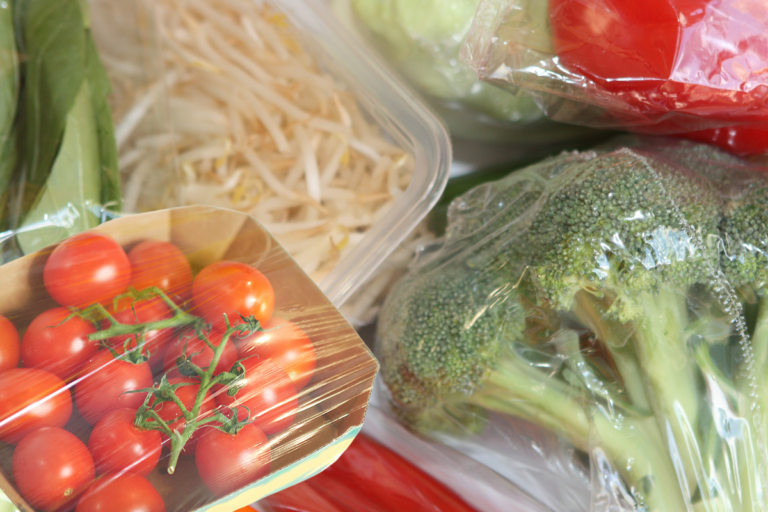Keeping Your Food Fresh – It’s essential to maintain a budget friendly kitchen by ensuring that your food stays fresh. By following the techniques, you can prolong the lifespan of your groceries minimize waste and guarantee that each meal is full of freshness and flavor. Here are six crucial suggestions to assist you in preserving the freshness of your food.
Choosing the Right Storage Containers
Selecting storage containers is a method to preserve the freshness of your food. Airtight containers are particularly advantageous as they prevent exposure to air and moisture which’re contributors to food spoilage. Opting for glass containers is a decision because they don’t retain odors and are simple to clean. It’s important to have container sizes to accommodate different types of food.
Maintaining Optimal Temperature Keeping Your Food Fresh
Ensuring temperature control plays a role in keeping your food fresh. Perishable items like dairy products, meats and fresh produce should be stored in the refrigerator at temperatures, below 40°F (4°C). To safeguard items and uphold their quality adjust your freezers temperature to 0°F (18°C) or lower. Regularly monitor your appliance temperatures using a thermometer to confirm they are set correctly.
Maintaining moisture levels is crucial, for leafy greens and herbs. A helpful tip is to store them in the refrigerator wrapped in a paper towel inside a perforated bag. This technique keeps the produce moist while allowing any excess moisture to escape, preventing wilting and mold formation. When it comes to berries it’s best to refrain from washing them until you’re ready to enjoy them to avoid spoilage due to moisture.
Ensuring adequate air circulation is key for temperatures in both your fridge and pantry. Avoid overcrowding these spaces as this can create areas with temperatures that may cause food to spoil prematurely. Arrange your fridge contents in a way that allows air to circulate freely around all items not keeping food fresh but also making it easier to locate and access what you need.
Having knowledge, about the shelf life of foods and following the FIFO (First In, First Out) method can significantly reduce food wastage. When bringing home groceries place them behind items so that you use up the older ones first before they go bad. Keeping track of expiration dates by maintaining a list can also assist you in monitoring which items need to be used
Store Foods in the Fridge and Freezer Keeping Your Food Fresh
Refrigerator:
- Fresh meat (beef, pork, lamb): 3 5 days
- Ground meat and poultry: 1 2 days
- Leftover cooked food:3 4 days
- Fresh fish and shellfish: 1 2 days
- Dairy products (milk, yogurt): 1 2 weeks
- Eggs: 3 5 weeks
Freezer:
- Fresh meat (beef, pork, lamb): 6 12 months
- Ground meat and poultry: 3—4 months
- Cooked leftovers: 2—3 months
- Fresh fish: 2—6 months (fatty fish like salmon have shorter freezer lives)
- Baked goods: 2—3 months
- Vegetables (blanched): 8—12 months
How to Store Foods Properly
Ensuring that foods are properly wrapped is crucial for keeping them fresh. Use cling film, aluminum foil or specialized food wraps to shield items from exposure to air. For foods like cheese that require some breathing room consider using wax paper or parchment paper. This method helps maintain humidity levels and prevents food from drying out or absorbing odors, in the refrigerator.
Here are some final thoughts; Following these six suggestions can help prolong the freshness of your food reduce waste and save you money. By using the right storage containers, controlling temperatures, managing moisture levels avoiding overcrowding understanding shelf life and wrapping foods properly you can ensure that your kitchen operates efficiently and sustainably. Not will your dishes taste better. You’ll also be contributing to a more environmentally friendly home.
Keeping your food fresh doesn’t have to feel overwhelming. With a bit of knowledge and effort,, you can enjoy the advantages of using ingredients in an organized kitchen. Happy cooking!
What Next:
- Crocodile Ice Cream: A Wild Adventure in Dessert-Making
- Pasta Carbonara- A Classic Italian Delight
- Japanese Miso Glazed Salmon – A Delicious Taste and Health
- Feijoada – A Taste of Brazil
- Bouillabaisse – The Legendary Fish Stew, from Marseille


